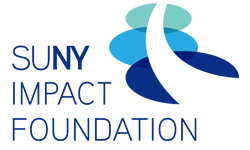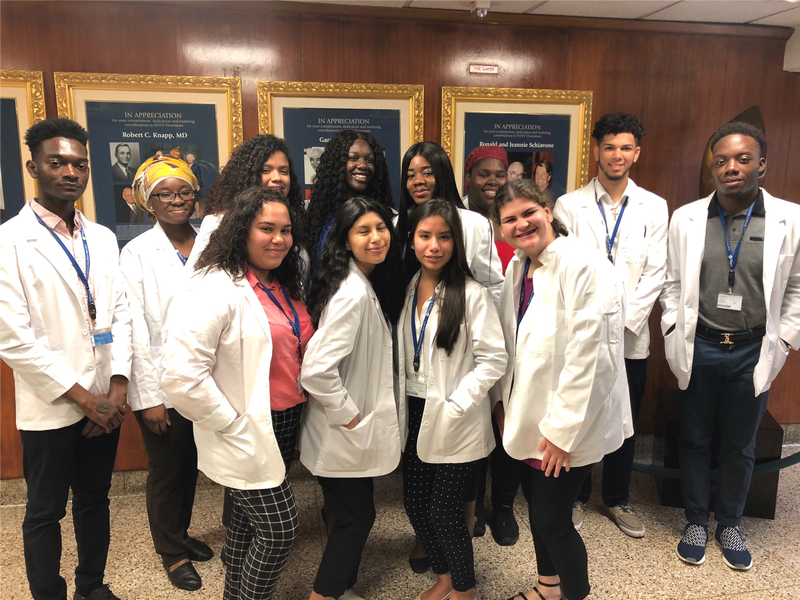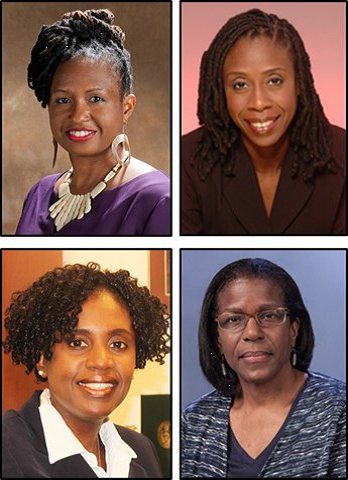Grants, Scholarships & Awards
SUNY Impact Foundation awards Downstate over $37,000 to create pipeline program

The Office of Diversity Education and Research and the Office of Financial Aid at Downstate have been awarded a $38,000 SUNY Impact Foundation grant to reinstitute a STEM exposure program targeting first and second year undergraduate students.
The Exploring Health Careers (EHC) Program will be led by principal investigators: Anika Daniels-Osaze, Ed.D.—Director of Diversity Education and Research, and Farah Burnett, MS—Director of Financial Aid.
EHC is an initiative to expose SUNY students in the Educational Opportunity Program (EOP) to a variety of careers in healthcare and all of the academic programs offered at SUNY Downstate. Over the course of a 6-week summer session, students participated in introductory coursework, academic development workshops, research presentations, and shadowing opportunities in clinics at Downstate, as well as at affiliated sites. For our first year we had a total of 13 students. Next year, the program will expand to accommodate 25 students.

Health Career Opportunity Program (HCOP) Academy
SUNY Downstate Awarded $3.2 million from the Health Resources and Services Administration

SUNY Downstate Health Sciences University has been awarded a 5-year federal grant from the Health Resources and Services Administration (HRSA) in the total amount of $3.2 million. The HCOP Academy is a collaboration between the Office of Diversity Education and Research and the Arthur Ashe Institute of Urban Health (AAIUH).
The HCOP Academy will be led by principal investigator, Anika Daniels-Osaze, Ed.D., Director of Diversity Education and Research, Co-PIs, Carla Boutin-Foster, MD, MS, Associate Dean for Diversity Education and Research, Marilyn Fraser, MD, Chief Executive Officer of the Arthur Ashe Institute for Urban Health, and the Associate Executive Director for Health Science Education, Mary Valmont, PhD.
The HCOP Academy will attract, recruit, and retain economically and educationally disadvantaged students into health profession careers by supporting several initiatives to increase diversity through partnerships with SUNY and CUNY institutions. It also provides scholarships to support students entering the College of Medicine and the College of Health Related Professions who demonstrate need.
The Academy has allowed us to reinstitute a high school program that is geared towards preparing students for STEM majors in college. It has also helped us to expand a program that allows undergraduate students to explore over 15 different careers in health care through classroom presentations and clinical shadowing. In addition, the Academy provides a guaranteed acceptance to students interested in becoming physicians through SUNY Downstate’s College of Medicine. Finally, the Academy will allow us to continue a Post-Baccalaureate program for premedical students and expand a pre-matriculation program for accepted students. Over the period of 5 years, we will have served a total of 575 students through these initiatives.